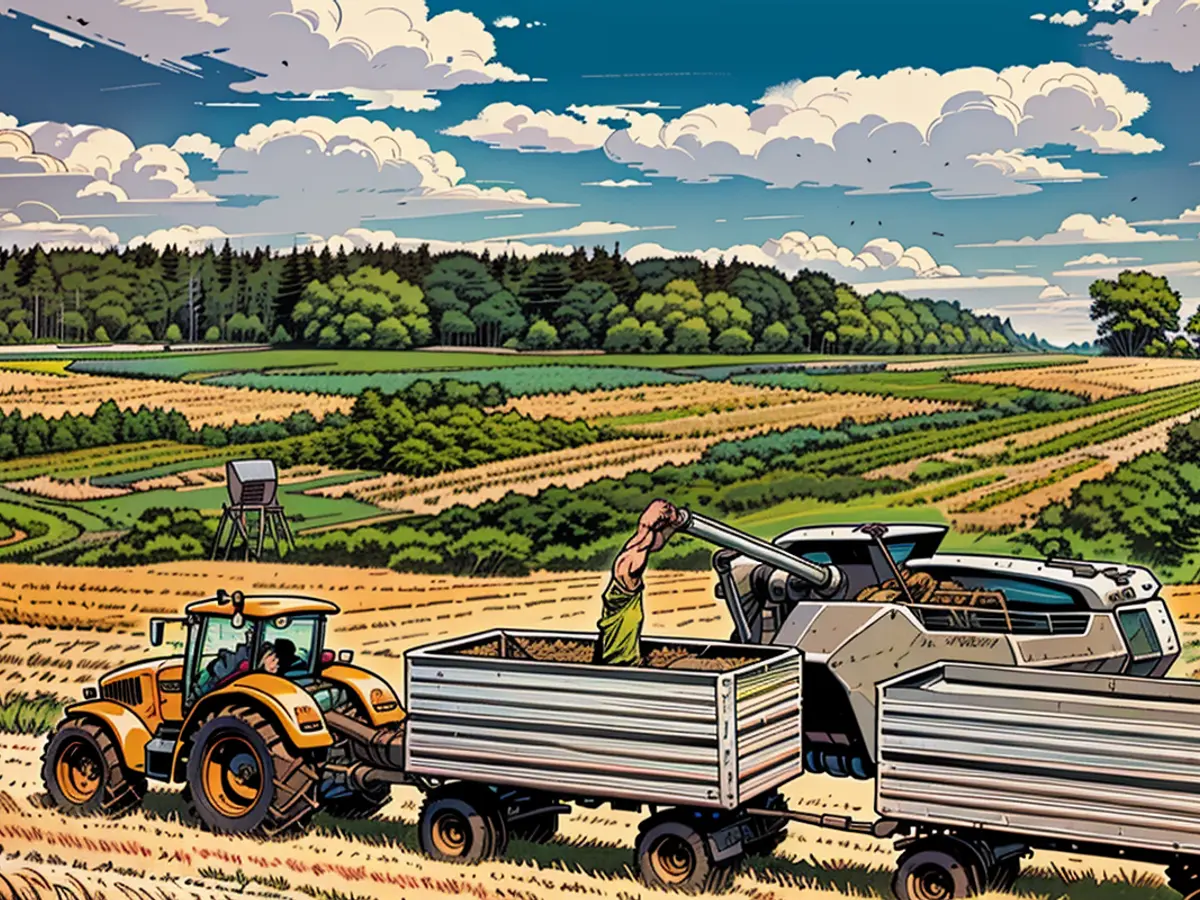Agriculture - The farmers are still seething
Among farmers, there is still buzz following the major tractor protests at the beginning of the year. Farmers' President Joachim Rukwied demanded corrections and additional easements from the federal government on Wednesday. "We finally need an agricultural policy for our businesses and not against them", he said at the German Farmers' Day in Cottbus. The coalition's relief package was described as "merely a packet and light-years away from what is necessary". The association demanded the withdrawal of planned regulations regarding fertilizers and pesticides. Bundesagrarminister Cem Özdemir (Greens) is scheduled to attend the Farmers' Day on this Thursday.
Rukwied made it clear that farmers, following the prolonged protest wave several months ago, have spoken out with increased self-confidence. With their actions in winter, farmers "collectively shook the land" and brought issues of food security and the future of agriculture to the forefront of society. In doing so, they also demonstrated that they stand for democracy and the common Europe. Even from Asia, inquiries were received on how to organize demonstrations, reported Rukwied, who was confirmed as president by the delegates with a large majority for another four years. Rukwied, who has been at the helm of the association since 2012, made a distinction regarding the political success of the protests. On the one hand, there is the EU with its large market, common regulations, and billion-dollar agricultural financing. In Brussels, farmers managed to change the agenda, for example, with relaxations regarding environmental requirements for fallow land. And in Berlin? "Apparently, the messages were not understood there", Rukwied criticized. "The agricultural political compass of the current federal government has not been found yet."
A measures package announced by the parliamentary group leaders of SPD, Greens, and FDP just before the Farmers' Day did not change this, according to Rukwied. Following the uproar in the industry over the end of long-standing tax benefits for agricultural diesel, the government had promised other reliefs and reached a consensus on specific points - from easements in the taxation of profits from good and bad years to less bureaucracy and a stronger position of farmers in the supply chain up to trade. Some of the measures are supposed to be sealed as promised still in the summer.
Rukwied signaled that a first small step had been taken, but "if politics now expects us to cheer and say, you've done great - sorry, that's not possible." Farmers were particularly incensed about further planned regulations, for example, in livestock farming - for instance regarding the clipping of piglets' tails. "The last pig farmer will have the lights turned off", warned Rukwied and referred to a significant shrinkage in previous years.
The Farmers' President emphasized at the same time that climate protection, animal welfare, and biodiversity remain important guidelines for agriculture. This should be achieved through incentives and new technologies, not through bans. Rukwied lamented that the coalition has not yet reached decisions for permanent financing of the conversion of livestock farming to higher standards. He also confirmed the consensus that the value-added tax on meat could be increased from the currently assessed seven percent by two or three points - but not to the full 19 percent to ensure that low-income families can still afford meat and sausages.
The FDP agricultural politician Gero Hocker rejected industry demands for rising food prices. They have already significantly increased due to inflation. "High-quality food must remain affordable for the broad population." The German Environmental Aid welcomed that the coalition aims to improve the position of farmers in relation to the market power of supermarkets. The fact that the Farmers' Association speaks of "impracticable requirements" when necessary improvements to animal welfare regulations are made, however, raises the question of how agricultural subsidies can be justified in the long term.
Farmers' Day 2024 in Cottbus
- Joachim Rukwied noted that even in Asia, farmers were inquiring about organizing protests following the farmers' demonstrations in Germany.
- The agriculture sector in Germany has called for an agricultural policy that supports their businesses, not hinder them, as stated by Rukwied.
- Cem Özdemir, the Agriculture Minister of Germany, is scheduled to attend the Farmers' Day, which is taking place in Cottbus.
- The coalition's relief package for farmers was criticized as insufficient, with Rukwied describing it as "merely a packet and light-years away from what is necessary."
- The FDP, a German political party, has rejected industry demands for rising food prices, stating that high-quality food must remain affordable for the broad population.
- Following the major tractor protests, farmers in Germany have spoken out with increased self-confidence, emphasizing their commitment to democracy and the future of agriculture in Europe.








